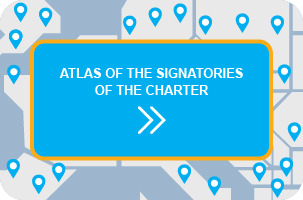The impact of the crisis on women
From an economic to a social crisis
A recent report from the European Parliament’s Committee on Women’s Rights and Gender Equality (FEMM), stresses the impact of the economic crisis on gender equality and women’s rights. The report concludes that the economic crisis has severely affected women’s situation in a different way than men and that the impact of the crisis on women tends to be underestimated. This is partly due to fact that women to a further extent performs unpaid or informal work which is not included in official unemployment figures, but also because women suffer from a higher risk of poverty since they often face a combination of difficulties such as single-parent families or taking the responsibility of dependents etc.
Women were already affected by unemployment, precarious work such as part time and low-wages, before the crisis. Today, due to cuts in budgets and social protection (health, childcare, education), women suffer from a “double punishment”. Cuts in government’s budgets and austerity plans are affecting the public sector, which is employed mainly by women (approximately 70% of the public sector’s employees are women). This will also have a significant impact on women’s carrier path, forcing them to engage in temporary, part-time or even informal jobs which only will affect their pension.
To stop this critical situation, the Committee on Women’s Rights and Gender Equality presents several recommendations. First, they call for the need to integrate gender mainstreaming in public authorities responses to overcome the crisis. They also underline the need for investment in education and training, specifically adapted for women, to adjust to the changes in the labor market and to increase women’s participation in different sectors. Furthermore, they call on member states to promote female entrepreneurship, though developing micro-credit possibilities.
They also point out the major repercussions of budget restrictions on the work-life balance, especially for single parents. To overcome this situation, and in order to support women to keep their employment, they call for investment and improvement of childcare facilities. Moreover, the report underlines the increase of incidence of violence against women, due to the crisis, and the importance of ensuring funding of programs working to prevent these problems. The report also calls for more gender-balance in decision-making positions since women have an important role to play in overcoming the crisis. Other recommendations include investment in public transport, the need for reliable data of the real impacts of the crisis on women.















